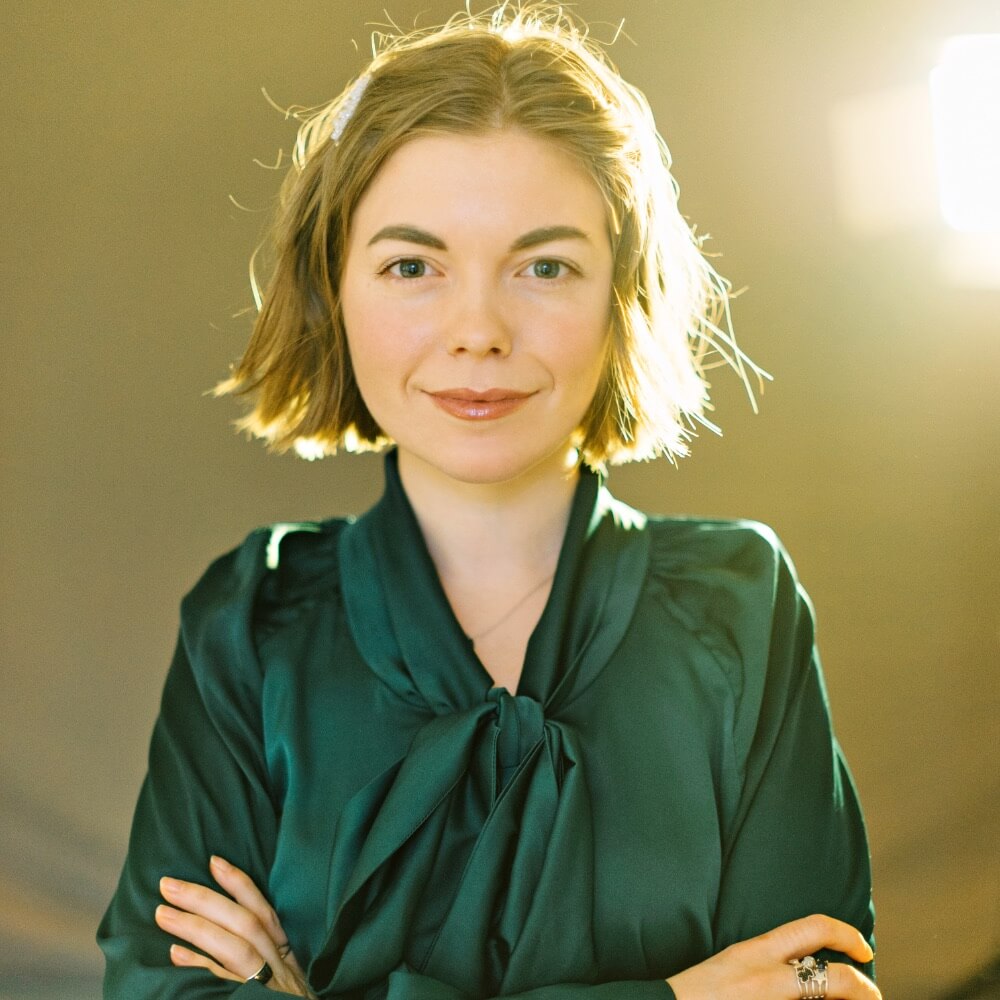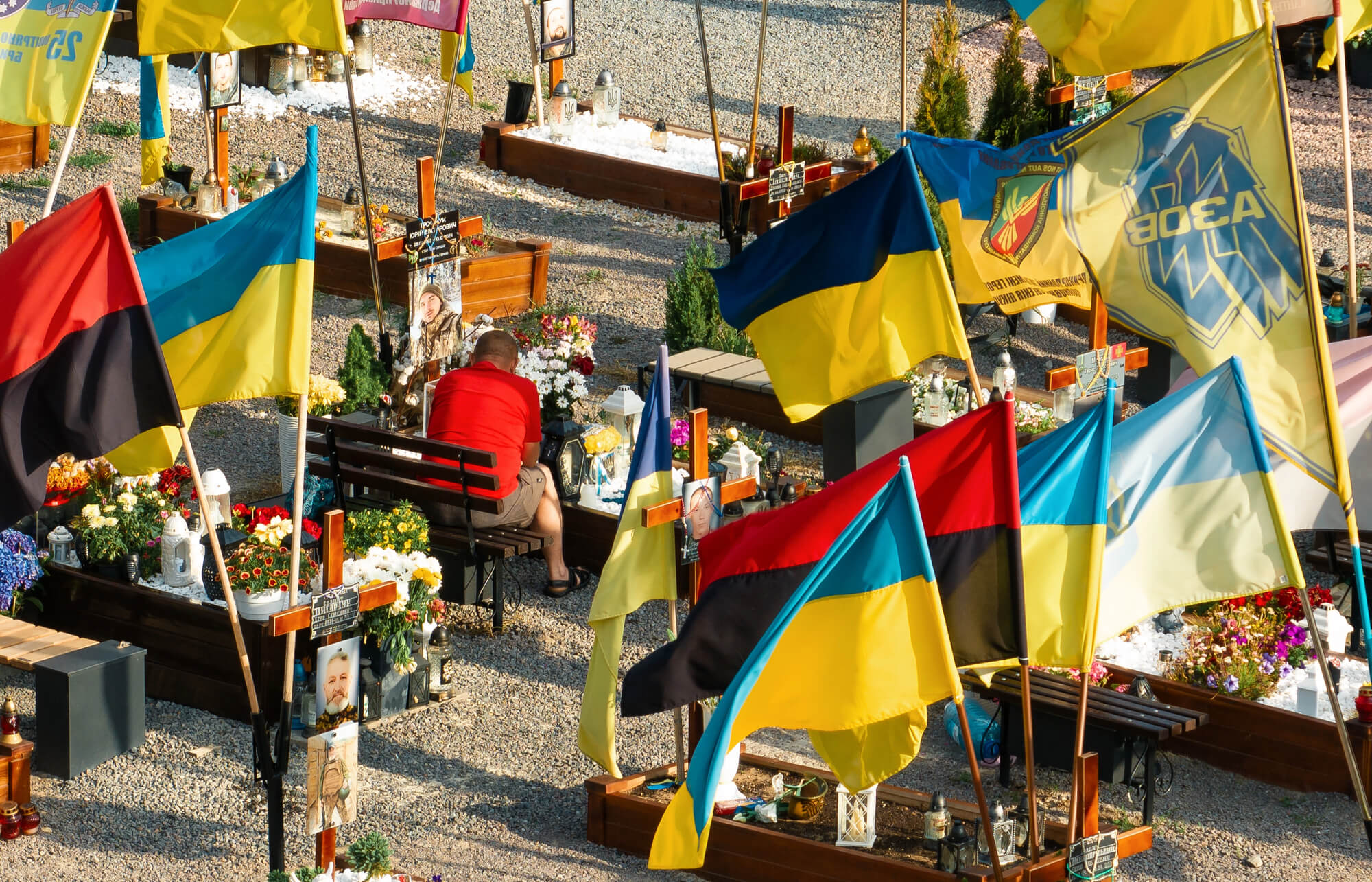As part of the analytical partnership of the conference “International Expert Exchange 2021: Partnership for Development” (ULEAD with Europe) and Vox Ukraine, we are publishing a special episode of the podcast “What about the economy?” with Slavutych mayor Yuriy Fomichov. We talk about economic development in the regions using Slavutych’s example and success stories. The podcast was recorded in the conference’s studio in December 2021. This is an abridged version. Listen to the podcast’s full version here.
Yuliia Mincheva: Why invest in Slavutych? What makes Slavutych currently stand out from other cities?
Yuriy Fomichov: In Slavutych, we’re not better or worse than others. We’re different. We’ve come a long way since 2000 after the monotown enterprise closed down. We chose the path of developing small and medium enterprises, a multi-vector market economy. We have experience, and we know how to work. We offer specific services, sometimes going beyond the usual registration services, leasing relationships…
For example, the year before last, we had the experience of creating Sunny City, the first municipal energy cooperative in Slavutych. Together with Andriy Zinchenko from Greencubator, we installed solar power plants on the roofs of municipal buildings. The investors were Slavutych residents. When the grace period for the city residents ended, we opened up to all willing investors. The entry threshold for investments is low, being only UAH 15 thousand. A green tariff is no longer needed to turn a profit. Today, our energy cooperative sells electricity at a green tariff price of 3.90 kopecks, and our Vodokanal buys it for 5.60 kopecks. Another question is whether a green tariff is needed. (Editor’s note: All SPP owners in Ukraine sell their energy at green tariff prices to the designated state-owned enterprise “Guaranteed Buyer”).
The team working for the city understands what the market economy is, what business is about, and why it should be cherished. It was nice to hear Andriy Zinchenko say he found a real “investment nanny” here. And that’s not a “Fröken Bock” but a “Mary Poppins.”
Y.M. It turns out that “investment nannies” do not require a separate law to be there 🙂 Tell us more about your business park. What is its main purpose?
Y.F. Industrial parks require considerable resources to introduce the system, and they don’t provide very significant benefits to investors. In my opinion, it won’t work. It also has to do more with big businesses. We’ve been following the path of creating conditions for small businesses. We have a small building of one and a half thousand high-quality, modern square meters suitable for doing business. Plus support: consulting and legal services provided by the city authorities. A transport company is operating there. There are those sewing clothes or planning on starting craft beer production. We offer a very attractive lease price of 3 hryvnias 77 kopecks per square meter, and we can sign a municipal property lease agreement within 72 hours.
Y.M. How do you work with your team? How difficult is it to push such ideas?
Often, it’s a matter of distrust in society and an unwillingness to change. However, the path of diversification and transition to a multi-vector economy has taught Slavutych to embrace change. We always explain what we do and why, and what opportunities are being created for people. Of course, in the beginning, there weren’t many people in Slavutych willing to invest in a solar plant or go to a business park. Eventually, however, trust in our projects grew.
Y.M. What arguments work?
Y.F. You just get things done. Using only your own experience, successful projects, and example
Y.M. What is the goals for the business park, and what are the performance indicators?
Y.F. The principal goal is to change the structure of budget revenues. In 2000, 98% of Slavutych’s budget revenues came from the Chernobyl Nuclear Power Plant. Now, they amount to 40%. Our task is to reduce their share further, diversifying the economy to protect it from risks. Unfortunately, we know what it’s like to depend on one company. In 2000, we lost eight and a half thousand jobs in one day. It was a shock. Therefore, a hundred enterprises employing ten people is way better than one employing a thousand people. Our business park is more of a laboratory of ideas. These are innovations, new businesses, and attracting young people. It’s a small space, kind of the “first swallow of spring.” However, we’re also ready for large industrial parks. We have the infrastructure of the former Chernobyl Nuclear Power Plant, and we are ready for businesses to enter there.
Y.M. How does the city prioritize problem-solving?
Y.F. There are two swimming pools, a stadium, five health centers, a sports palace, a film and concert complex, a horse base, a yacht club, etc., for 25,000 Slavutych inhabitants. It all needs to be maintained, which costs a lot of money. However, it also encourages action. We understand we should spend less on energy, which means energy efficiency. Our priority is economic development. If the city’s economy develops, people will live more comfortably in it. We want to attract as many people to the city as possible. The city is very comfortable and compact. We have gorgeous drinking water, and I now only drink water from the tap so that the water supply company won’t slack off. We also try to create content that’s interesting to people.
Y.M. As a gift for the Local Self-Government Day, if something could be changed, implemented, and improved in Ukraine to contribute to the development and strengthening of local self-government, what do you think it would be?
Y.F. A broad dialog. I have this saying, it’s not mine, but it fits here: “Local government and central government are definitely not enemies.” There needs to be a dialog. This year, it‘s been difficult for everyone. It concerns tariff policies and the heating season (whether there’ll be rolling power cuts or ensuring that all systems operate in the critical period). When having a dialog, it’s important not to speak but to listen. In genuine dialogue, compromises are always found.
Slavutych is a city of regional subordination in the Kyiv region on the Dnipro river’s left bank with a population of about 25,000.
Slavutych was founded in 1986 for the Chernobyl Nuclear Power Plant’s workers evacuated from the current exclusion zone after the Chernobyl disaster. It got its name from the ancient Ukrainian name for the Dnipro. The city’s territory is an exclave of the Kyiv region on the territory of the Chernihiv region that provided part of the land of the Ripky and Chernihiv districts following the decision to build the city. Most working-age people work at the Chernobyl Nuclear Power Plant and enterprises.
Attention
The author doesn`t work for, consult to, own shares in or receive funding from any company or organization that would benefit from this article, and have no relevant affiliations



